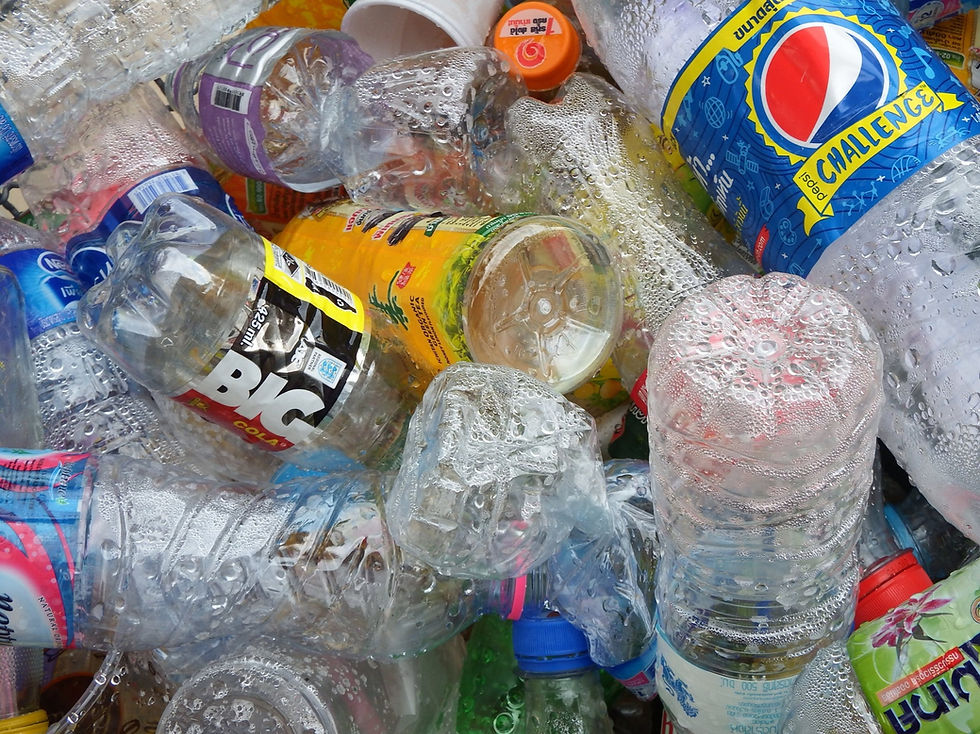The Hot Topic: Single-Use Disposable Plastic Impacting Wildlife
- Aug 2, 2018
- 3 min read
The recent spotlight on the devastating effects single-use plastic has on our environment and consequently our wildlife has been a step forward for our society.
It’s difficult not to be discouraged thinking your individual actions won’t make a real difference. Although that may be correct on a world scale, it’s not the case for the individual wildlife you prevent from injury or death.
Anyone can help our wildlife by reducing single-use plastic consumption and other waste to prevent injury or harm to our wildlife. Hopefully this article will provide you with some workable ideas for you and your family to do this.

Choices you can make to prevent wildlife injury and death from single-use plastic:
Utilise re-usable packaging and containers
Don’t accept single-use plastic carrier bags. It’s great supermarkets in New Zealand are soon abolishing free single-use plastic bags and encouraging re-usable bags instead, so remember to also take this initiative to other stores.
Invest in reusable containers.
Support reusable initiatives such as Kai Carrier, which supply reusable food storage bags for snacks, sandwiches and pureed food for children.
Purchase your own reusable produce bags.
Take your own reusable coffee cup and smoothie/milkshake cup..
Opt for reusable straws instead of the plastic alternative and say no to straws at cafes, restaurants and bars.
Alternatives to single-use plastic and excess packaging
Markets
Don't buy vegetables and fruit wrapped in plastic at supermarkets.
Support your local weekend market to access plastic free produce currently unavailable at supermarkets, in particular green leafy vegetables and fresh herbs.
Take your reusable produce bags with you.
Find your local Farmer's market.
Bakeries
Move away from packaged convenience foods and either support your local environmentally friendly bakery or make your own.
Utilise the cabinet section in supermarkets and bring your own containers or reusable bags.
Bulk produce
Utilise bulk bins for cereals, nuts, grains, flours, pastas, rice, legumes, beans, spices and cleaning items.
Some of these products are available at supermarkets and others at bulk bin stores, Asian food stores or organic stores.
Nude Grocer (for those living in Wellington) and Good For (for the rest of New Zealand) are online stores that deliver these pantry items as well as fresh produce plastic free.
Make your own
Bake your own cookies or cakes instead of buying them wrapped in plastic.
Make your own popcorn instead of buying it packaged.
Buy chocolate with compostable packaging, e.g. Trade Aid.
Make your own bread (or see suggestion above).
Make your own dips, cereals, crackers.
Personal items
For soap, shampoo, conditioner, moisturisers, deodorants - support innovative New Zealand plastic-free companies like Ethique.
Toothbrushes – support plastic free companies like Toothcrush or Do Gooder.
Floss - get compostable floss from Do Gooder.
Use a stainless steel shaver instead of plastic disposables.
Buy plastic free toilet paper (and paper free – to save those trees!).
Cleaning items (if you don’t want to make your own and can’t locate at bulk bin stores)
Dishwasher – find plastic free options at your supermarket (often tablets from eco friendly brands) e.g. Eco Planet.
Washing powder – find plastic free options at your supermarket.
Buy environmentally friendly laundry stain remover.
For Those That Fish
Please dispose of your waste such as fishing lines, nets and hooks carefully
Dispose of your bait with caution as some bait is treated with substances that are toxic to wildlife.
Get Proactive
Engage in pre-arranged litter clean ups or do one of your own.
Make a change – pick up 5 items of litter a day or vow to always pick up litter you come across.
Spread the word. Create greater awareness of our impact on the environment and wildlife and encourage others to make a difference too.
Remember, doing something is better than nothing.
Share your suggestions with us on Facebook to reduce single-use plastic consumption!
Jordan Rennie, WReNNZ Committee Member






Comments